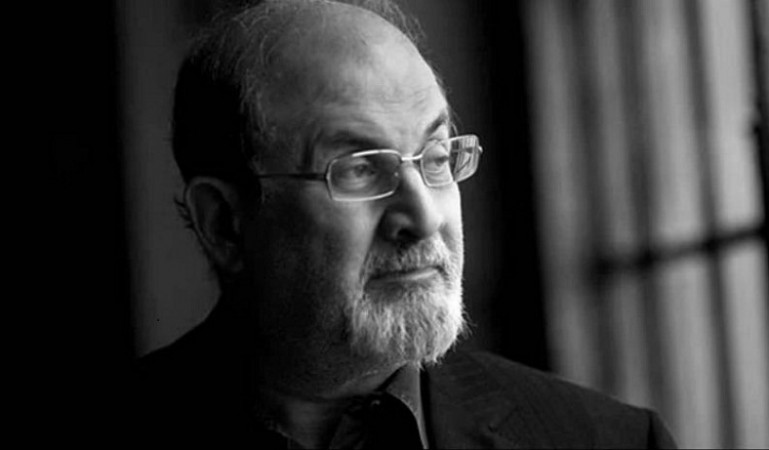
Salman Rushdie is a British-Indian novelist and essayist, known for his significant contributions to contemporary literature. He was born on June 19, 1947, in Mumbai, India. Rushdie's most famous work is the novel "Midnight's Children," which won the Booker Prize in 1981 and was later awarded the "Booker of Bookers" in 1993 as the best novel to have won the prize in its first 25 years.
Salman Rushdie's writing often combines elements of magical realism and historical fiction, exploring themes such as identity, religion, politics, and cultural clashes. He is considered one of the leading figures of the postcolonial literary movement and has made a significant impact on the field of contemporary literature.
In 1988, Rushdie's novel "The Satanic Verses" sparked controversy and led to a fatwa (religious edict) issued by Ayatollah Ruhollah Khomeini, the Supreme Leader of Iran at the time. The fatwa called for Rushdie's execution due to perceived blasphemy against Islam in the book. This event forced Rushdie into hiding for several years to ensure his safety.
Salman Rushdie gained international fame for his fourth novel, "The Satanic Verses," which was published in 1988. However, this novel also sparked significant controversy and led to a fatwa being issued against Rushdie by Ayatollah Ruhollah Khomeini, the Supreme Leader of Iran at that time.
The fatwa, which called for the killing of Rushdie, forced him to live in hiding under police protection for several years. Despite the threats and challenges he faced, Rushdie continued to write and publish numerous acclaimed works of fiction, non-fiction, and children's literature.
Some of Rushdie's notable works include "Midnight's Children," which won the Booker Prize in 1981 and was later awarded the Booker of Bookers in 1993 as the best novel among all Booker Prize winners to that date. Other significant works by Rushdie include "The Moor's Last Sigh," "The Ground Beneath Her Feet," "Shalimar the Clown," and "Two Years Eight Months and Twenty-Eight Nights."
Throughout his career, Salman Rushdie has received numerous awards and honors for his contributions to literature. In addition to the Booker Prize, he has been honored with the Golden PEN Award, the European Union's Aristeion Prize for Literature, and the Austen Riggs Center Prize for Distinguished Contributions to Psychiatric Thought. He was also appointed a Knight Bachelor by Queen Elizabeth II in 2007 for his services to literature.
Beyond his writing, Rushdie has been an influential figure in discussions on freedom of speech, censorship, and the clash of cultures. His experiences following the publication of "The Satanic Verses" have made him a prominent advocate for free expression and artistic freedom.
On Salman Rushdie's birthday, people around the world celebrate his literary contributions and the impact he has made on contemporary literature. His work continues to inspire readers and spark intellectual conversations on a wide range of topics.
Remember, the information provided here is based on the knowledge available up until September 2021, and there may have been further developments or events related to Salman Rushdie since then.